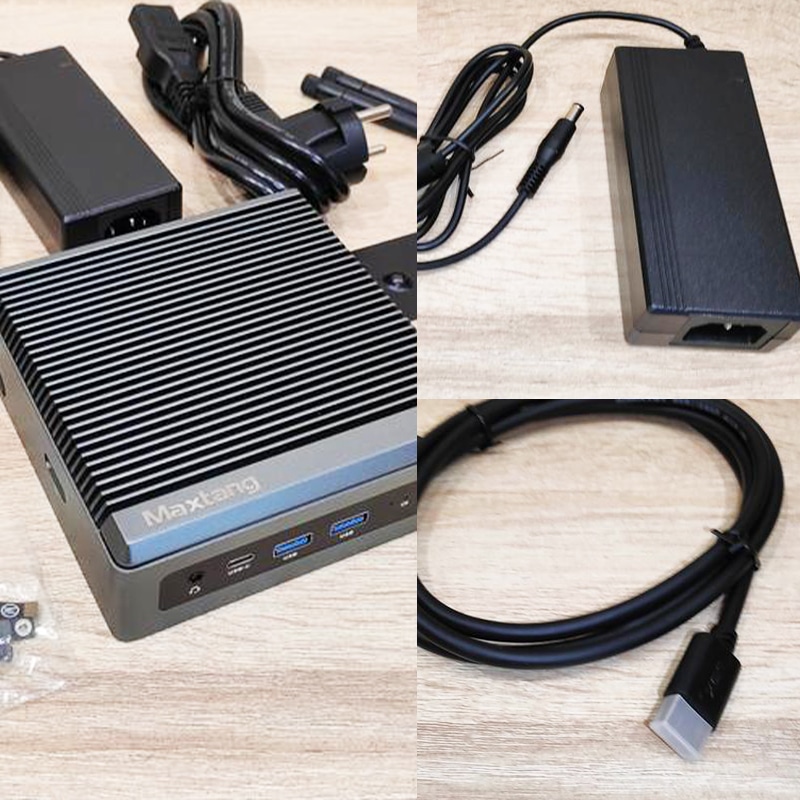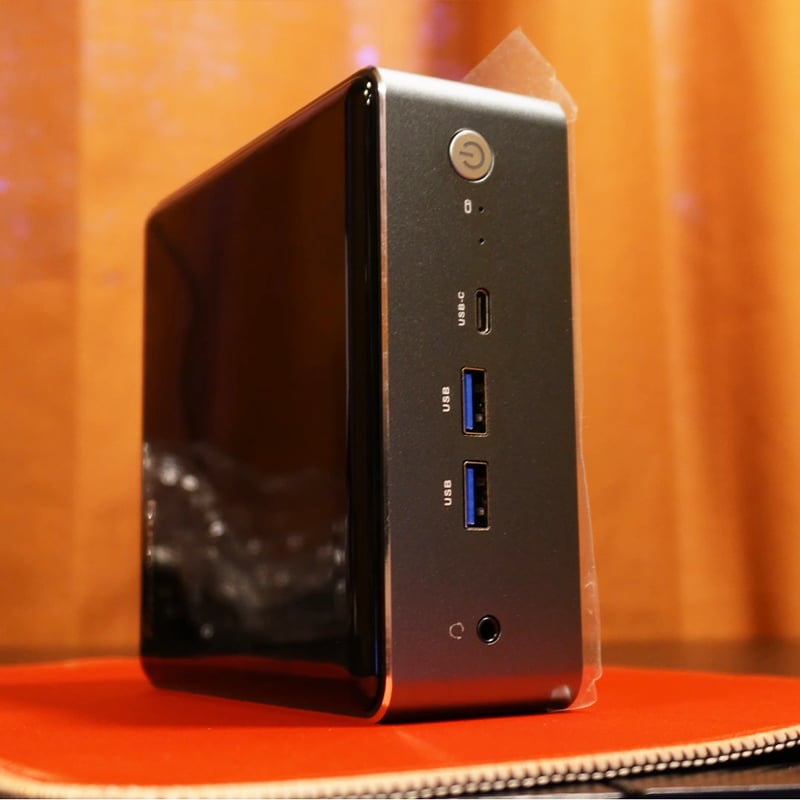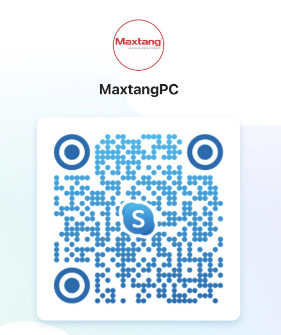When searching for a Linux computer, most of us think about laptops or desktops. But there’s a relatively new contender in the market—Linux mini PCs.
For many users, these mini PCs are gradually replacing traditional desktops. Traditional desktops are bulky, take up a lot of space, and can be noisy. In contrast, mini PCs are compact, only about 4 or 5 inches, and perfect for sitting on your desk without taking up much space.
Additionally, many mini PCs are fanless, a significant advantage over traditional desktops. While there are fanless desktop options, they still take up a lot of space. Plus, mini PCs often have a more appealing design. If you’re considering a new desktop and don’t need it for heavy gaming, I highly recommend opting for a Linux mini PC.
Despite their small size, mini PCs are far more powerful than single-board computers like the Raspberry Pi. They can easily replace traditional desktops because their performance is comparable to most desktops on the market.
If you’re intrigued by the idea of getting one, here are some of the best Linux mini PCs you can choose from:
Best Linux Mini PCs
1. Intel NUC
Intel NUC is a classic choice. While it may not come pre-installed with Linux, you can easily install it yourself. This mini PC offers a range of configurations, from fully functional mini PCs to DIY NUC boards, similar to the Raspberry Pi.
Intel NUC 11 Pro Specs Overview:
- Intel 11th Gen processors
- Radeon Vega graphics
- Up to 64 GB RAM
- HDMI ports
- USB Type-C ports
- Dual LAN ports
- M.2 SSD
- WiFi 6 and Bluetooth

Prices start around $400, with higher-end configurations reaching up to $1000.
2. Maxtang MTN-FP750
If you’re looking for a Ryzen-based mini PC, the Maxtang MTN-FP750 is a powerful option. It offers various pre-installed Linux distributions and supports coreboot open-source firmware, providing more control.
Specs Overview:
- Processor: AMD Ryzen 7
- RAM: Up to 64 GB
- Storage: Up to 2 TB SSD
- Integrated Graphics: AMD Radeon 680M
- Pre-installed OS: Ubuntu, Linux, Windows
Prices start around $400, depending on the configuration.

3. Nx-n100 Fanless Mini PC
The Nx-n100 is a fanless, dustproof industrial mini PC from Maxtang. It supports multiple configurations, and while it may not come pre-installed with the latest Ubuntu desktop, you can install any OS you need.
Specs Overview:
- Processor: Intel 12th Gen
- RAM: At least 8 GB
- Storage: At least 128 GB SSD
- Supported OS: Ubuntu, Linux, Windows
The starting price is around $135.
4. System76 Meerkat
System76 Meerkat is designed specifically for Linux users, offering excellent performance and customization options. It comes with System76’s Pop!_OS, a popular Ubuntu-based distro.
Specs Overview:
- Processor: Intel Core i5 or i7
- RAM: Up to 64 GB
- Storage: Various options available
- Graphics: Integrated Intel graphics
- OS: Pre-installed Pop!_OS (other Linux distros available)
Prices start at about $600.
5. Librem Mini
Purism’s Librem Mini focuses on privacy and security. It comes with PureOS, a Debian-based Linux distro that emphasizes user privacy and free software.
Specs Overview:
- Processor: Intel Core i7
- RAM: Up to 64 GB
- Storage: Up to 4 TB SSD
- Graphics: Integrated Intel graphics
- OS: Pre-installed PureOS
Prices start around $700.
6. Dell OptiPlex Micro
Dell OptiPlex Micro series is designed for business users, offering robust performance and stability. It can come with Ubuntu or other Linux distributions pre-installed.
Specs Overview:
- Processor: Intel Core i5 or i7
- RAM: Up to 64 GB
- Storage: Various options available
- Graphics: Integrated Intel graphics
- OS: Pre-installed Ubuntu or other Linux distros
Prices start at about $500.
7. Asus PN50
Asus PN50 is a compact mini PC offering good performance and various connectivity options. It supports pre-installed Ubuntu or other Linux distros, suitable for home entertainment and office use.
Specs Overview:
- Processor: AMD Ryzen 4000 series
- RAM: Up to 64 GB
- Storage: M.2 NVMe SSD support
- Graphics: Integrated Radeon graphics
- OS: Pre-installed Ubuntu or other Linux distros
Prices start at about $400.
8. Lenovo ThinkCentre M75q Gen 2
Lenovo ThinkCentre M75q Gen 2 is a stable and powerful mini desktop, perfect for business and personal users. It supports pre-installed Ubuntu or other Linux distributions, providing efficient office and multimedia processing capabilities.
Specs Overview:
- Processor: AMD Ryzen 4000 series
- RAM: Up to 64 GB
- Storage: Various options available
- Graphics: Integrated Radeon graphics
- OS: Pre-installed Ubuntu or other Linux distros
Prices start at about $500.
9. HP Z2 Mini G5 Workstation
HP Z2 Mini G5 Workstation is a professional-grade mini workstation for users requiring high-performance computing. It supports pre-installed Ubuntu or other Linux distributions, providing a reliable working environment and stability.
Specs Overview:
- Processor: Intel Core or Xeon
- RAM: Up to 64 GB
- Storage: Various options available
- Graphics: NVIDIA Quadro or AMD Radeon Pro
- OS: Pre-installed Ubuntu or other Linux distros
Prices start around $800.
10. Gigabyte BRIX
Gigabyte BRIX is a highly customizable mini PC supporting pre-installed Ubuntu or other Linux distributions. It offers various processor and storage options, suitable for home entertainment and office needs.
Specs Overview:
- Processor: Various Intel or AMD options
- RAM: Up to 64 GB
- Storage: M.2 NVMe SSD support
- Graphics: Integrated Intel or AMD graphics
- OS: Pre-installed Ubuntu or other Linux distros
Prices start at about $300.
Why Choose a Linux Mini PC?
Using a mini PC instead of a traditional desktop has many advantages. First, mini PCs are compact, saving a lot of space on your desk, making them perfect for small offices or home environments. Despite their small size, they pack powerful performance for everyday office tasks and light graphic processing work, like image editing or light gaming.
Additionally, mini PCs usually consume less power and run more quietly, eliminating the noise that traditional desktops often generate. With technological advancements, the expandability and connectivity options of mini PCs continue to improve, catering to more user needs.
In summary, if you want to work efficiently while saving space and energy, a mini PC is definitely worth considering.




